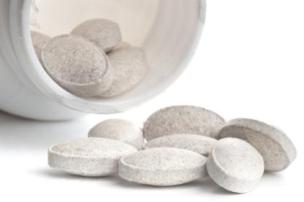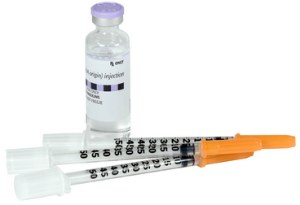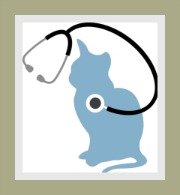Feline Diabetes Treatment
Caring for a Diabetic Cat
Feline diabetes treatment is complex and will require commitment from the cat owner. It will be a labor of love!
Being told that your cat has diabetes can be devastating. If the disease is diagnosed early and your cat is generally in good health, cat diabetes should not signify a death sentence. It can be treated.
Naturally there are financial implications so you will need to discuss all the options, treatment regimen and costs with your veterinarian at the outset.
The initial cost of feline diabetes treatment will be high as your cat will need hospitalization, various diagnostic tests and it may take some time for the diabetes to be stabilized.
It will also require regular visits to the vet after your cat has been discharged from hospital.
If you have cat insurance, this will be a good time to consult the details of your policy.
Another consideration will be the effect on your lifestyle. Feline diabetes treatment will require your time, commitment and an adjustment to your lifestyle as cat diabetes treatment can be challenging.
Essentially feline diabetes treatment may involve one, all or a combination of the following:
1. oral hypoglycemic tablets

This is administered in the form of a tablet or pill by mouth. Whilst there are special applicators for the administration of tablets, it can be difficult with certain cats.
Oral hypoglycemic drugs act by either reducing the production of glucose or by stimulating the pancreas to release insulin.
In order for these drugs to be effective, the pancreas needs to be in 'good working order.'
Certain oral anti-diabetic drugs have being shown to cause damage to the liver and pancreas.Other associated side effects may include loss of appetite and vomiting.
Some cats do not respond well to oral hypoglycemic drugs and in many
instances insulin is the preferred feline diabetes treatment.
2. insulin therapy

Injectable insulin is classed as a hormone and is administered to cats with Type I or Type II diabetes.
There are different types of insulin and your veterinarian will prescribe the most suitable one for your cat.
The veterinary team will guide you on all aspects of insulin therapy.
They will:
- teach you how to administer the insulin, how much insulin to use and about the importance of keeping to a schedule and following all instructions carefully
- educate you about the disease, how to recognize hyperglycemia or hypoglycemia and about the emergency treatment of a cat suffering from either of these conditions
- provide you with the insulin, the syringes and the needles and educate you on giving a subcutaneous injection (under the skin - not intramuscular)
- advise you on dosage and storage of the insulin
- teach you how to inject, where to inject and the importance of alternating the injection site
hypoglycemia
If your cat is given an overdose of insulin it will suffer from a condition called hypoglycemia which will present with:
- restlessness, lethargy and weakness, shivering, hunger, head may tilt sideways, movement will be uncoordinated and finally, seizures and coma
The
veterinarian should be contacted immediately but a small dose of
glucose can be given orally to raise your cat's blood glucose.
hyperglycemia
If your cat is given insufficient insulin it will suffer from a condition called hyperglycemia and will present with:
- polydipsia (increased thirst), polyuria (increased urination), dehydration, mood changes (depression), weight loss, excessive hunger, increased incidence of infections and nerve damage to legs
The
objective is to get your cat to the vet as soon as possible, but the
emergency treatment would be to administer insulin as per the
veterinarian's instructions.
3. diabetic cat food
A feline diabetes diet is used on its own or in combination with oral hypoglycemic drugs and insulin therapy to treat cat diabetes.
Diet is an important element of feline diabetes treatment. Your veterinary team will provide you with all the details related to this aspect of the cat's treatment.
It's important to understand that the cat obtains sugar from its diet (from carbohydrates) and hence the importance of a properly controlled and measured diet.
The subject of the cat diabetes diet seems to be a controversial subject, with varying opinions amongst experts in feline nutrition.
During our extensive research and speaking to cat breeders and veterinarians to clarify this subject, we came away even more concerned with regards to what the ideal diabetic cat food diet is!
There appears to be various schools of thought:
- Some experts subscribe to the high fiber ; high carbohydrate diet
- Others lean towards the low carbohydrate ; low fiber diet
- There
are those who have no opinion on the subject and simply advocate the
use of premium dry and wet cat food, which in itself is highly
contentious.
We
came across the opinion of Lisa A Pierson DVM, who appears very
knowledgeable on the subject of diabetes cat food and provides some food for thought.
feline diabetes prognosis
The prognosis of a cat with diabetes depends on the cause of the condition and the cat's response to treatment.
It is important to understand that there is no cure for the disease, but at the same time, it can be successfully managed and treated.
If obesity is the cause of the diabetes and the cat's weight is controlled, the diabetes may even go into remission.
A cat with uncontrolled diabetes may suffer permanent damage to nerves and blood vessels which will severely reduce life expectancy.
On
the other hand, cats with controlled feline diabetes will, with the help
of their dedicated owners and committed veterinary team, go on to live
healthy and happy lives.
Top of Feline Diabetes Treatment
Return to Feline Diabetes Symptoms
search our site
please like us
share our site
recommend on google
favorite pages





